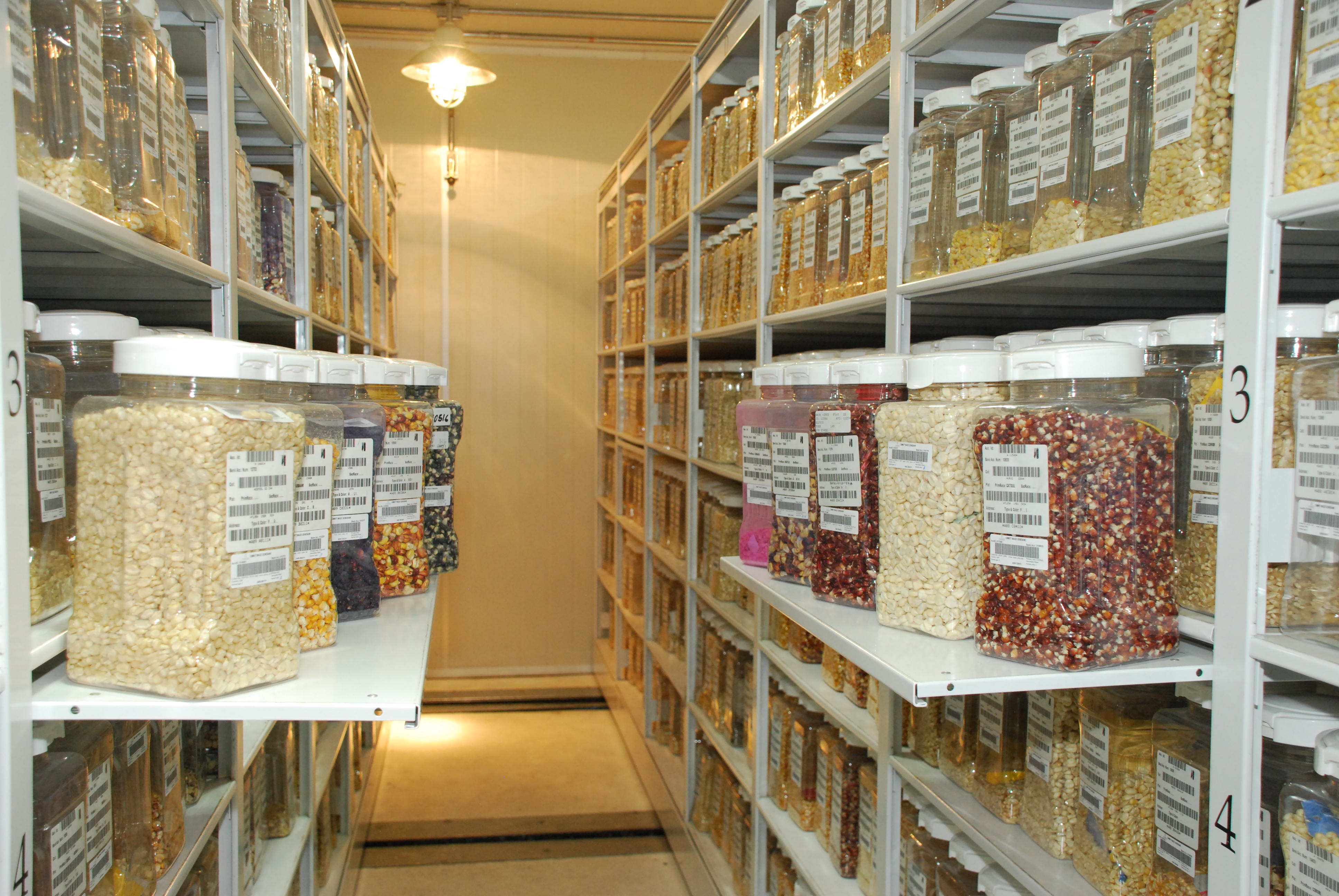Climate adaptation and mitigation
Climate change threatens to reduce global crop production, and poor people in tropical environments will be hit the hardest. More than 90% of CIMMYT’s work relates to climate change, helping farmers adapt to shocks while producing more food, and reduce emissions where possible. Innovations include new maize and wheat varieties that withstand drought, heat and pests; conservation agriculture; farming methods that save water and reduce the need for fertilizer; climate information services; and index-based insurance for farmers whose crops are damaged by bad weather. CIMMYT is an important contributor to the CGIAR Research Program on Climate Change, Agriculture and Food Security.
Education, supportive policies key to making biotechnology work for Africa
 Climate adaptation and mitigation
Climate adaptation and mitigation
Increasing public understanding and creating supportive policies key recommendations at a session on boosting Africa’s use of biotechnology.
New multi-crop zero-till planter boosts yields and farming efficiency in Pakistan
 Capacity development
Capacity development
A new planter that promotes dry seeding of rice, saves water and increases planting efficiency is being used increasingly in Pakistan’s Punjab Province.
Building a sustainable future: A history of conservation agriculture in southern Africa
 Capacity development
Capacity development
Since 2004, conservation agriculture has helped farmers in southern Africa maintain and boost yields, protect the environment and increase profits.
Bhutan and Bangladesh join forces to combat threat of rust diseases
 Capacity development
Capacity development
For the first time, Bhutan and Bangladesh are collaborating on evaluating Bangladeshi wheat lines for resistance to yellow and leaf rusts.
Action needed to adapt maize breeding to climate change, report shows
 Climate adaptation and mitigation
Climate adaptation and mitigation
Breeding and seed systems must immediately adapt to changing climates if major loss of maize yields is to be avoided, a new report shows.
Seeding the future: Emergency support for drought-affected farmers in Ethiopia
 Capacity development
Capacity development
The 2015-2016 El Niño has led to drought leaving 10.2 million people – more than 1 in 10 Ethiopians – in need of emergency food assistance.
New Publications: Advances in breeding for future climates
 Climate adaptation and mitigation
Climate adaptation and mitigation
New advances in heat-tolerant wheat in South Asia and how physiological breeding can help increase yields.
Maize seed systems in Africa: Understanding the basics
 Climate adaptation and mitigation
Climate adaptation and mitigation
Since 2006, CIMMYT has developed 200 drought-tolerant varieties and hybrids, many of which possess desirable traits such as resistance to major diseases.
From A to Z: Developing nutritious maize and wheat at CIMMYT for 50 years
 Climate adaptation and mitigation
Climate adaptation and mitigation
Over the past 50 years, various research activities have been undertaken to boost protein quality and micronutrient levels in maize and wheat to help improve nutrition in poor communities.
Sustainable agriculture takes root in Karnataka, India
 Capacity development
Capacity development
Nearly 150 scientists, researchers and extension agents attended a field training on conservation agriculture and mechanization for sustainable intensification.
Improved maize fights drought in Malawi
 Climate adaptation and mitigation
Climate adaptation and mitigation
As an El Niño-induced drought continues to devastate southern African food crops, CIMMYT promoted drought-tolerant maize to Malawian politicians.
Annual meeting highlights adoption of conservation agriculture in Sichuan, China
 Climate adaptation and mitigation
Climate adaptation and mitigation
CIMMYT is expanding conservation agricultural practices aimed at enhancing the productivity of labor, land and capital in China’s Sichuan Province.
CIMMYT scientist to assume leadership role at the American Society of Agronomy
 Capacity development
Capacity development
CIMMYT Principal Scientist Ortiz-Monasterio appointed as 2017 Global Agronomy Section Vice Chair of the American Society of Agronomy.
Maize: From Mexico to the world
 Climate adaptation and mitigation
Climate adaptation and mitigation
For Mexicans, the “children of corn,” maize is entwined in life, history and tradition. It is not just a crop; it is central to their identity.
Harnessing maize biodiversity for food security, improved livelihoods in Africa
 Capacity development
Capacity development
Diverse, stress tolerant maize varieties are benefiting smallholders throughout sub-Saharan Africa.
